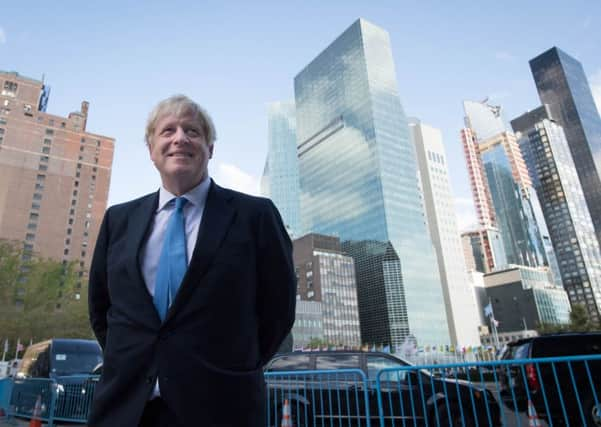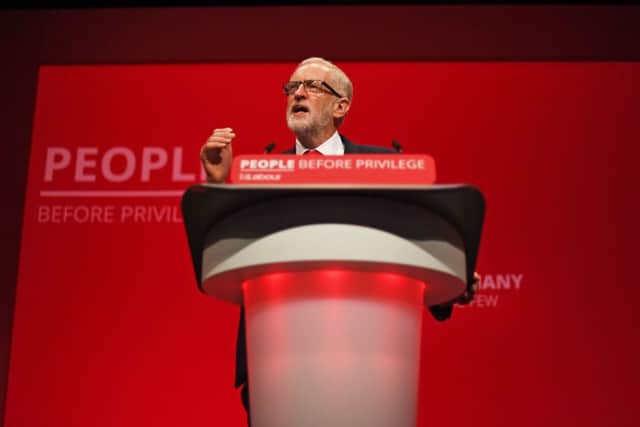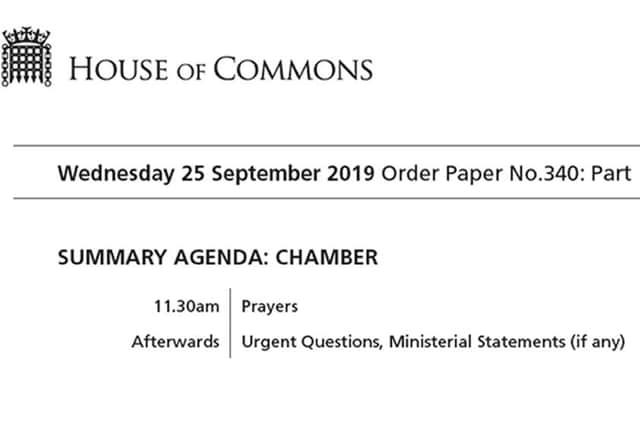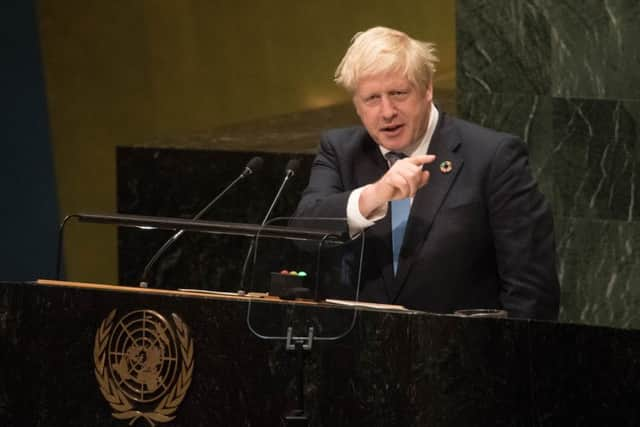The advice civil servants will give to Boris Johnson if he wants to save Brexit – Tony Rossiter


From his reactions so far, it seems that his bulldozer approach to Brexit will continue. Egged on by his adviser Dominic Cummings, he seems hell-bent on a divisive and dangerous ‘people versus parliament’ election. If so, my hunch is that he will get a nasty shock when people vote on the basis of the issues about which they care most – the NHS, social care, policing, education, transport – and which have nothing to do with the EU.
Advertisement
Hide AdAdvertisement
Hide AdMPs who want to question, change, delay or cancel the Prime Minister’s Brexit strategy now have more time to do so. From my personal perspective, that’s no bad thing. I’m in no doubt that our membership of the EU is far better for the UK than any alternative deal – and very much better than leaving without a deal.


But if I were a civil servant advising the Prime Minister on what he should now do, my personal views would be irrelevant. Civil servants work for the government of the day in accordance with the Civil Service code. The key values are honesty, objectivity, integrity and political impartiality. Their job is to look at the evidence and provide objective advice. Despite the nonsense spouted about a Whitehall conspiracy to thwart Brexit, I have not the slightest doubt that my former colleagues have maintained those traditional standards. Many of them have worked their socks off to help the Government implement Brexit.
Advertisement
Hide AdAdvertisement
Hide AdIn giving a Minister advice, a civil servant needs to take account of the political context. So I would not advise the Prime Minister to jettison his ‘do or die’ pledge to implement Brexit on October 31. I would see it as my job to help him to achieve that objective.


What advice would I give? Above all, I would underline the damaging consequences of a no deal exit from the EU. All credible economic analysis points to severely adverse effects, both in the short and longer term. I would give him as many facts and figures as I could (for example tariffs of 40 per cent or more on meat and dairy exports and 12 per cent on fruit and vegetables; non-tariff barriers affecting chemical industry exports; damage to just-in-time supply chains of the automotive and other industries). I would also remind him of the Government’s own analysis suggesting that after 15 years the economy would be nine per cent smaller than if we had remained in the EU.
It would be equally important to point out that a no deal exit would not be the clean break that some have suggested. It would leave all the tricky issues unresolved. The EU is our largest trading partner and we would certainly need to negotiate some kind of UK-EU trade deal. Before discussing such a deal, the EU would undoubtedly insist on payment of monies owed (i.e. the exit bill of some £39bn), an agreement on citizens’ rights, and agreement on the Irish border. So no deal would be just the start of the process – not the end. I would also point to the adverse consequences no deal would have for our security and international standing and, potentially, for the integrity of the UK.
It would be for the PM to decide whether or not to accept my advice. He might choose to ignore it and – despite the legislation requiring him to seek an extension of the Article 50 deadline – try to pursue a no deal exit, but I would not be doing my job if I did not give him the best evidence-based advice I could.
Advertisement
Hide AdAdvertisement
Hide AdAssuming that the PM stuck to his refusal to seek an extension of the October 31 deadline, but accepted the advice to avoid no deal, the only possible course of action would be to reach out across the Commons to the many Conservative and Labour MPs who believe that we should leave the EU – but only with a deal. Given the tight timescale this would mean something pretty close to Theresa May’s deal.


The main (though not the only) stumbling block is the Irish backstop – the insurance policy to guard against a hard border in the event that there is no UK-EU trade agreement. The obvious solution would be to accept a border in the Irish Sea – something the DUP has so far resisted. But if the PM were to beef up the accompanying Political Declaration to include the possibility of both a hard (Canada-style) and a soft (Norway-plus) Brexit, that might – just – secure the support of sufficient moderate MPs on both sides (people like Stephen Kinnock and Rory Stewart) to enable the withdrawal deal to pass without DUP votes.
There is one final throw of the dice that could tip the balance: the offer of a confirmatory referendum. That’s unlikely. But didn’t an 11-0 Supreme Court judgment seem just as unlikely?
Tony Rossiter, from North Yorkshire, is a former diplomat and civil servant who worked predominantly at the Department of Trade and Industry.